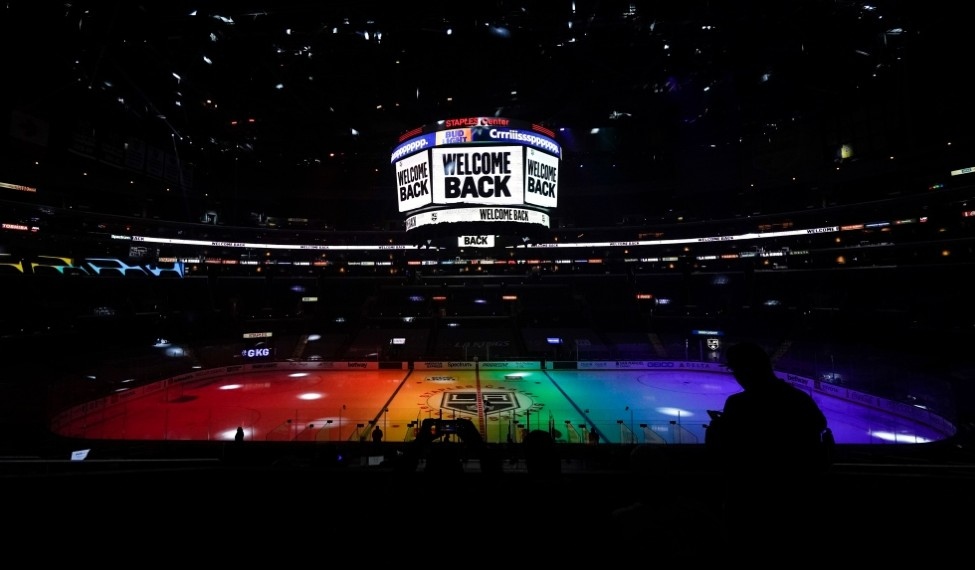Mixed feelings, disappointment around the NHL pride night controversies
Two NHL hockey players with northern Ontario roots find themselves in an unwelcomed spotlight after refusing to don pride-themed jerseys.
Brothers and current Florida Panthers players Eric and Marc Staal, both originally from Thunder Bay, Ont., decided to sit out of pride-themed pre-game warmups and celebrations ahead of Thursday’s game against the Toronto Maple Leafs.
The Staals released this statement on their decision through the Panthers’ public relations team:
“After many thoughts, prayers and discussions we have chosen not to wear a pride jersey tonight.
We carry no judgment on how people choose to live their lives, and believe that all people should be welcome in all aspects of the game of hockey.
Having said that, we feel that by us wearing a pride jersey it goes against our Christian beliefs.
We hope you can respect this statement, we will not be speaking any further on this matter and would like to continue to focus on the game and helping the Florida Panthers win the Stanley Cup.
Eric and Marc Staal”
The Staals refusal to wear pride-themed jerseys during the NHL’s celebratory event has disappointed some in their hometown.
Officials with the Rainbow Collective of Thunder Bay, a 2SLGBTQ+ group founded in 2021, said they felt it sent the wrong message to those who may look up to the brothers.
Jason Veltri, the collective’s president, said inclusion and awareness and welcoming is the foundation of what these nights are about.
“They (the Staals) have contributed in ways to our community that will last legacies,” said Veltri.
“I think this is just massively disappointing for them as leaders in the hockey community, not only locally here in Thunder Bay, but in Canada.”
The decision comes after fellow Canadian James Reimer, goaltender for the San Jose Sharks, refused to wear a pride-themed Jersey for warmups before his game on March 18. The Chicago Black Hawks have also released a statement indicating out of concern for Russian players after the Kremlin passed legislation outlawing “gay propaganda” they will not be wearing pride jerseys — however other pride-themed activities will still be part of the night.
“There are youth that are looking up to these leaders within the NHL community and trying to emulate them,” said Veltri, while expressing disappointment himself.
The pride night games have been organized by You Can Play Project, an organization dedicated to providing a safe, inclusive space for the LGBTQ+ community for over a decade.
The project worked with 30 different pro organizations, including a partnership with the NHL, to share that message.
“It’s about saying listen, a little extra love, a little extra visibility, shows that you’re welcome here,” said the You Can Play Project’s chief operating officer Kurt Weaver.
“Usually it’s to communities either traditionally weren’t hockey fans, or you know, maybe didn’t feel as welcome in hockey.”
Eric Staal was questioned about his previous participation in pride-themed events after the game, which he denied even after photos have surfaced of him wearing a pride-themed jersey during his time with the Montréal Canadiens.
His brother, Marc, a former Sudbury Wolves captain was recently honoured by the Greater Sudbury community and the Wolves organization itself in an event where his jersey and number retired.
Fierté Sudbury Pride, a group dedicated to supporting, educating and celebrating the 2SLGBTQ+ population of the City of Greater Sudbury which was formed in 1997 and formally incorporated as a non-profit organization in 2012, told CTV News that recent events speak to a bigger concern of an unspoken divide between the queer and hockey communities.
Laur O’Gorman, vice-chair of the Sudbury pride organization, said while they ultimately do not agree with the reasoning behind the Staals’ decision there are some mixed feelings.
“On one hand it’s like ‘I don’t want you in my jersey, I don’t want you representing us if you’re not a safe person to be around,’” said O’Gorman.
“Somebody wearing a rainbow and making it look like it’s a safe space to be when it’s not could be very harmful.”
Officials with Fierté Sudbury Pride said for 2SLGBTQ+ youth seeing themselves represented is important.
“It’s such a tiny but important symbol of maybe queer kids who are playing hockey seeing themselves out there or seeing they might be safe to stay in hockey, that hockey can become a place to see themselves as they grow,” said O’Gorman.
CTV News did reach out to the Sudbury Wolves, but the organization declined to comment on the matter.
Both O’Gorman and Veltri said this unfortunate event symbolizes that there is much more work to be done and that there needs to be more education and visibility within the hockey community.
For all the latest Sports News Click Here

